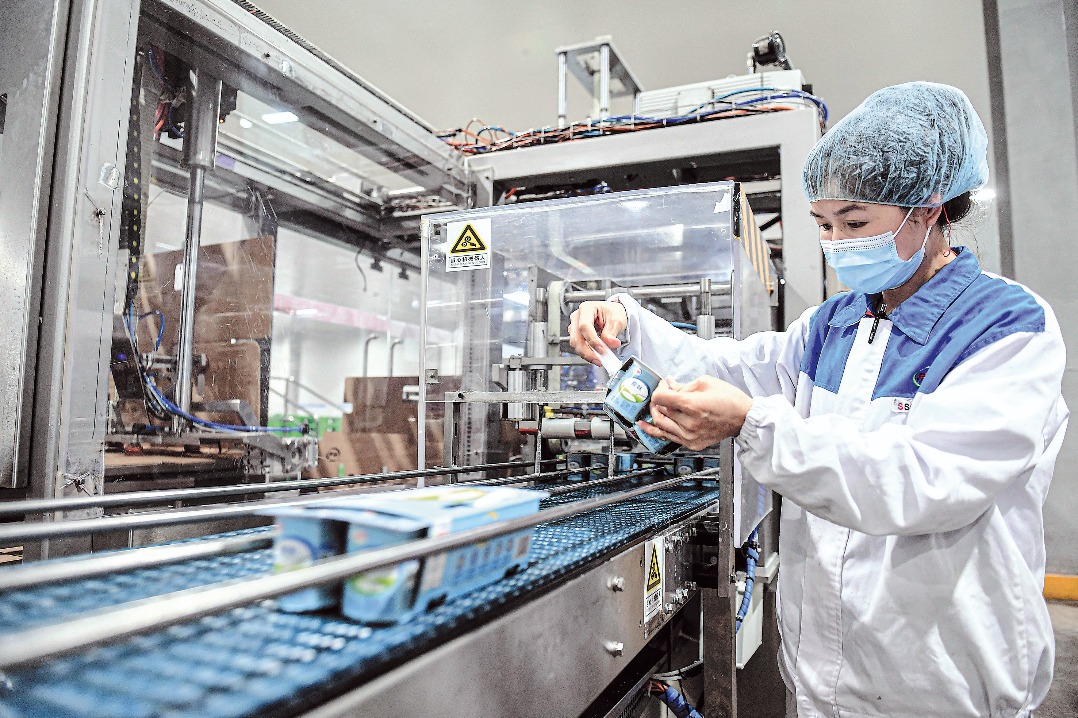Artificial intelligence opens new avenues for healthcare in China


China's healthcare industry is ramping up artificial intelligence application in disease diagnosis and healthcare, and industry sources said AI-incorporated healthcare solutions will help alleviate the country's inadequate and imbalanced medical resource allocation.
AI is rapidly improving disease diagnosis and treatment accuracy in county-level hospitals, as China calls for more efforts to develop the new generation of AI to inject a fresh driving force into the country's high-quality economic growth, according to Fang Cong, vice-president of Hangzhou Yitu Healthcare Technology Co Ltd, a startup that pioneers in AI healthcare innovation.
"China has the world's richest medical data, and a keen thirst for AI. The government has been creating a good environment for the AI industry to develop, and we also have resourceful AI talents," she said.
"From laboratory research to clinical use, AI (in healthcare) is developing with unprecedented speed in China. Our medical facilities have taken a lead in using AI-based applications compared to other countries."
The company has developed a series of clinical intelligent diagnosis systems for lung cancer, breast cancer and children's growth and development, which can deliver diagnosis reports within seconds and have been used in hundreds of hospitals throughout the country.
The incorporation of AI into clinical practice will not only enhance doctors' working efficiency and reduce their workload, but more importantly, will promote advanced diagnosis and treatment experiences from top hospitals to less privileged ones, and level up healthcare services at county-level facilities because AI is often developed with medical data from top hospitals, according to Fang.
That is important, especially as China is building a tiered medical care system with which patients choose medical institutions of different levels according to the severity of their illness, instead of just crowding into top hospitals for any ailment, Fang said.
DXY, a leading online healthcare platform, has also been deepening its AI push.
"AI can rapidly empower doctors in grassroots areas and make a change," said Zhang Wei, vice-president of DXY.
The company released China's first AI-based skin disease diagnosis system last year, together with the Second Xiangya Hospital of the Central South University in Changsha, Hunan province, and Glority, an AI technology company in Hangzhou, Zhejiang province.
The system was able to diagnose lupus and other similar skin diseases with an accuracy of more than 85 percent, the company claimed. Lupus is a rare chronic autoimmune disease that leads to skin conditions.
After undergoing tests and deep learning for a year, based on the data bank of the nationally reputed hospital for skin disease treatment, the system now can diagnose 85 types of skin diseases with an overall accuracy of 86 percent. Among 35 common skin diseases, the accuracy is as high as more than 95 percent, the company said.
In April, the system officially opened to certified doctors, who can upload photos of patients' skin lesions through WeChat to the system, and then take reference from the advice the system gives within seconds on diagnosis and treatment, as well as other information related to the condition.
"AI-based diagnosis tools may not be that helpful to experienced doctors, but will definitely help young and inexperienced doctors to learn and improve," Zhang said, who is also secretary-general of the Dermatology Artificial Intelligence Development Alliance of China.
"That means a lot to China, which lacks experienced dermatologists, especially in grassroots areas."
China has only 20,000 dermatologists, many of whom are in cities rather than in rural areas, and in the eastern regions instead of the west, he said, adding that many hospitals in remote areas even cannot afford a skin disease department.
However, he said, despite the fast development and application of AI in healthcare, AI cannot replace doctors, because healthcare not only requires medical knowledge but also care for people, which only doctors can provide.
Fang, vice-president of Hangzhou Yitu Healthcare, said there are challenges shadowing the further application of medical AI in China, such as the low data quality resulting from the inadequate digitalization of Chinese hospital systems, the lack of regulation of privacy and ethics, and the inability to meet complicated clinical needs with a single solution.
Xinhua contributed to the story.




































